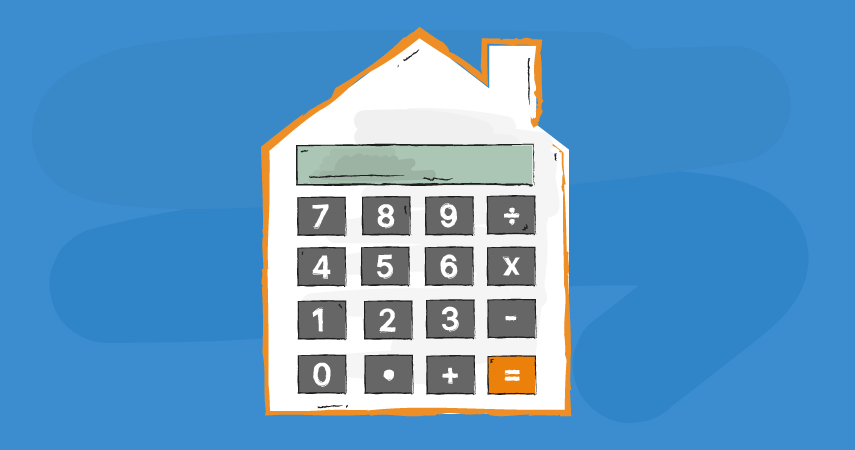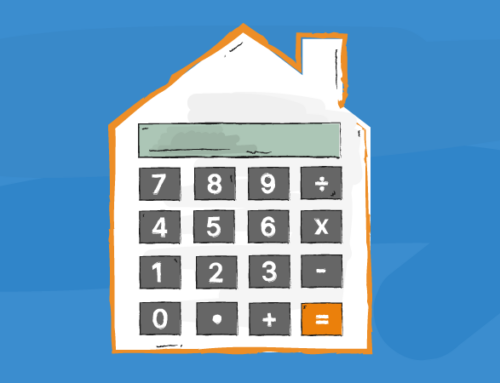A landlord’s guide to tenancy deposits

As a landlord, you should understand the law regarding tenancy deposits and how failing to comply can affect your rights to reclaim rent arrears. In this article, we’ll provide an overview of what to consider.
What are your responsibilities regarding tenancy deposits?
If your property is rented on an Assured Shorthold Tenancy (AST) that started after 6th April 2007, you must protect your tenant’s deposit in one of three Government-approved schemes under the Housing Act 2004.
The three Government-approved deposit protection schemes are:
Once you have received the deposit from the tenant, you have 30 days to protect the funds and provide your tenants with the prescribed information. This includes:
- The address of the rental property
- How much deposit has been paid
- How the deposit is protected
- The name and contact details of the tenancy deposit protection scheme and its dispute resolution service
- Your (or your letting agent’s) name and contact details
- The name and contact details of any third party that’s paid the deposit
- Why you might keep some or all of the deposit
- How the tenant should apply to get the deposit back
- What the tenant should do if they can’t get hold of you (or your letting agent) at the end of the tenancy
- What the tenant should do if there is a dispute over the deposit
Providing the prescribed information to the tenant is as important as protecting the deposit, as failing to comply with these rules will make you liable for a fine. If you do not protect the tenant’s deposit or provide the prescribed information, your tenant can claim the return of the deposit, or a judge can order its return on their behalf. Additionally, you may face a fine of between one and three times the deposit amount.
How much can you request for a deposit?
As a result of the Tenant Fees Act, any tenancies begun or renewed after 1st June 2019 may only be charged a deposit that equates to a maximum of five weeks’ rent for tenancies less than £50,000 per year. For tenancies where the annual rate is £50,000+, this maximum amount is increased to six weeks’ rent.
Your responsibilities at the end of a tenancy
At the end of a tenancy, you also have a responsibility to return your tenant’s deposit in a timely manner, within ten days of when the tenant requests the deposit back. If you plan to make deductions from the deposit, then these deductions and the reasons behind them must be detailed to the tenants within these ten days.
Deductions made from the deposit should be fair and reasonable. Grounds for deducting from your tenants’ deposits include:
- Cleaning
- Damage
- Redecoration
- Missing items
- Gardening
- Rent arrears
- Unpaid utilities
If a dispute arises over deposit deductions that you cannot resolve between yourselves, you can use your deposit scheme provider’s alternative dispute resolution service to help you reach a fair resolution.
What if your tenant stops paying rent?
As mentioned above, your tenant falling into rent arrears is one reason why you may be able to claim a deduction from their deposit. In this situation, you may be able to use Section 21 or Section 8 of the Housing Act 1988 to serve your tenants notice and repossess your property.
Section 21 notices
A Section 21 notice enables you to evict your tenants either at the end of a contracted fixed-term tenancy or during a rolling tenancy with no fixed end date. A Section 8 notice can only be used if your tenants have broken the terms of the tenancy agreement.
However, there are certain terms that will prohibit you from using a Section 21 notice to evict your tenant, and one of these is failing to follow tenancy deposit laws. This means that if your tenant falls into rent arrears, you will not be able to get them out of your property using a Section 21 notice, which allows you to begin the accelerated possession procedure, if you have not correctly protected their deposit. If you do wish to recover your property, you will have to return the deposit to the tenant first.
If you wish to try and recover the rent arrears, you must also be aware that you cannot use the deposit to do so if it is not protected.
Section 8 notices
Despite this, you are still able to use a Section 8 notice to seek possession of your property if you do not protect the deposit, so long as you establish a ground for possession, such as rent arrears. However, be aware that the tenant may still claim for the penalties in respect of the tenancy deposit law breach.
If you do decide to issue a Section 8 notice, you must fill in a ‘Notice seeking possession of a property let on an assured tenancy or an assured agricultural occupancy’. You also need to specify on the notice which terms of the tenancy have been broken by the tenant.
Find suitable protection for your property
There are various risks associated with letting a residential home. Help keep your investment safe, whether it’s a single property or a portfolio.
Don’t be caught out if your tenants fall into rent arrears. Ensure that you follow proper procedure in protecting your tenants’ deposits, and consider taking out suitable Rent Guarantee Insurance to help keep you covered.
Our comprehensive Landlord Insurance can help protect you from financial risks, including accidental and malicious damage by tenants and loss of rent if the property becomes uninhabitable due to an insured event.
The sole purpose of this article is to provide guidance on the issues covered. This article is not intended to give legal advice, and, accordingly, it should not be relied upon. It should not be regarded as a comprehensive statement of the law and/or market practice in this area. We make no claims as to the completeness or accuracy of the information contained herein or in the links which were live at the date of publication. You should not act upon (or should refrain from acting upon) information in this publication without first seeking specific legal and/or specialist advice. Arthur J. Gallagher Insurance Brokers Limited trading as Just Landlords accepts no liability for any inaccuracy, omission or mistake in this publication, nor will we be responsible for any loss which may be suffered as a result of any person relying on the information contained herein.
FP1720-2023




